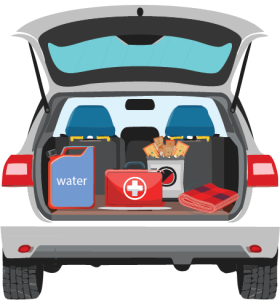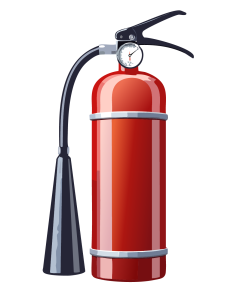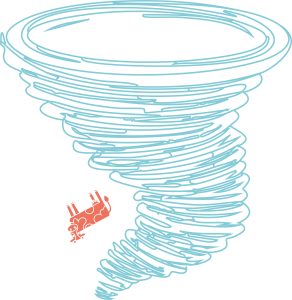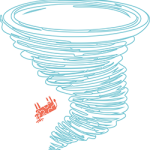Floods – Intense Wind or Storms – Fire – Earth Quake – In Your Car – At Work – Winter Weather –
Lost in The Wilderness
Make sure you get Emergency Alerts
Help may take awhile to arrive BeReady!
Volunteer, Give Blood, Get training, Donate 
This website offers ideas on preparedness and includes links to products and web pages you may be interested in. We don’t offer professional advice and ask you to approach emergencies with mindfulness and above all, BeReady!
BeReady for short or long term disruption
BeReady to Shelter in place
-
- Have some basic shelf stable food items to last for 1-6 months. Buy only the food you normally eat and rotate often. Keep your freezer stocked, it’ll stay frozen longer, eat this stuff first.
- Find a way to store 3 gallons of water per person per day for up to a week. Consider getting water purification sticks in case if the situation goes on for more than a week.
- Consider having a way to heat water and cook food if the power/gas is off. A BarBQ or propane grill, sterno, etc. Dont not use gas items indoors.
- Battery back up night lights may be very helpful in a power outage.
We got one and Love it! Battery back up night light Get it now for $11.24 from Walmart 6-14-25
-
- Consider getting back up power for small and large needs. Small batteries for things such as Cpap machines, oxygen or coolers might be helpful. You can also keep your cell phone charged with battery packs. Some services may still be available or restored quickly.
- You don’t need solar panels for household back up batteries. Whole house electrical back up comes in a variety of choices.
Natures Generator whole house and portable batteries. We have the 1800w 120v AC system with 3 extra batteries and the Powerhouse 120V/240V 7200W for our well.
Suncheck Solar programs for your home
Do not use fuel powered generators or gas heaters indoors
Install proper electrical connections for generators
BeReady if you have to evacuate
Keep these things ready, in case immediate evacuation is required:
People and Pets
- Have pet carriers easily accessible with treats and pet food.
- Water for your pets and your people.
- Have camping gear ready, sleeping bags, tents, what ever you own so you wont have to look for them when you need them.
- Have a bag with changes of clothes and basic hygiene ready.
Papers, Phone numbers and important documents.
Prescriptions, vitamins, and eyeglasses.
- Bring supplies for Baby, food, diapers, etc
- Bring items for the disabled, pets, elderly.
- Have camping gear ready, sleeping bags, tents, what ever you own so you wont have to look for them when you need them.
- Have a bag with changes of clothes and basic hygiene read
Pictures and irreplaceable memorabilia.
- On your drive or online back up
Personal computer information on hard drive and disks
- Keep important paperwork in a fire safe bag, grab it if you have time if you have to leave.
- Use an external drive or online service for computer back up
- Credit cards, ATM cards and cash.
If they only give you five minutes just leave, don’t wait for an order
- Know the alternate routes out of your neighborhood
- Have camping gear ready, sleeping bags, tents, what ever you own so you wont have to look for them when you need them.
- Have a bag with changes of clothes and basic hygiene ready.
- Bring supplies for Baby, food, diapers, etc
- Bring items for the disabled, pets, elderly.
BeReady if your home is unlivable
IMPORTANT! Call your insurance company before taking advice or allowing work with contractors. IMPORTANT!
- Make sure it’s safe to enter, Follow instructions from authorities about returning home and salvaging personal items.
- Know how to turn off the gas, electricity and water if needed.
- Locate your BeReady supplies.
Build your BeReady kit for the Car
If you go off the road, get stuck in weather or you are stranded.
- A window breaking tool, if case you end up in water. IMPORTANT! BeReady to escape from the car.
- Try to have at least half a tank of gas in your car at all times. If the power is out you may not be able to buy gas easily. If your car is stuck you may need to run
 the car to keep warm.
the car to keep warm. - Keep snacks in your car. If you get stuck you’ll need to keep your energy going. Rotate food frequently to keep it wholesome.
- A blanket and/or space blanket
- Keep water in your car and rotate it frequently.
- A whistle, in case you can’t be seen from the road
- Jumper cables as well as tire repair kits and an inflater and battery back up if possible.
- Know how to change a tire.
- Emergency signals, flares, a yellow vest and signs to add to your kit so that people can see you in the dark or to signal for help. This kit has most of the things already in it, or get what you want separately
- A flashlight
- Basic first aid kit If you are a health care provider you may have more advanced tools.
 A fire extinguisher
A fire extinguisher- Kitty litter for mud and snow traction
- Extra clothes, foul weather gear
- Rope and a knife or multitool.
- Bungee cords, zip ties or velcro to secure loose objects in car. (in case you have to stop fast or get in an accident)
- See my post on this topic If your car goes into the water
 BeReady at work
BeReady at work
- Keep snacks or meals in your desk in case you can’t go home
- Get first aid training
- Know where the fire extinguishers and the AED (Automated External Defibrillator) are.
- Keep water in your bag or desk and rotate it frequently
- Talk to your coworkers about emergency scenarios
- Know where the exits are and how to react in case of an active shooter, tornado, earthquake or fire
- Talk to your family about back up plans and gathering points.
- Know where the gathering points are at work if you must evacuate so people know where you are.
- BeReady to duck and cover in an earthquake or explosion
- Post to social media that you are safe.
BeReady to Prevent fire
- Install smoke detectors, Free help may be available or call your local fire department.
- Get fire extinguishers and fire smothering blankets
- Avoid using extension cords, never plug an extension cord into another extension cord.
- Use generators and heaters properly and with proper ventilation, install Carbon monoxide detectors
- Follow these guidelines to create a defensible space to prevent loss from a wild fire.
- Create an evacuation plan in the event of wild fire. Know alternate routes out of your neighborhood, town.
- Consider wearing dust masks or respirators during and after wild fire
- Never leave campfires unattended, properly dispose of cigarettes and matches, and avoid igniting materials in dry conditions
- Wildfires spread rapidly in dry conditions, especially when fueled by wind.
- Keep vehicles out of dry grass
- Avoid target shooting during extreme fire danger
- Expect power outages during extreme fire danger. public safety power shut offs (PSPS)
BeReady for Flood
Flood can occur anytime anywhere from heavy storms, river over flow, sudden snow melt, dam breaks and storm surge. In the desert the soil may not be able absorb sudden down pours. Tsunamis can happen near any body of water after an earthquake.
- Take flood alerts seriously. You should leave or be prepared to move to higher ground upon short notice, don’t wait for notice
- Make sure your gutters and drainage are clear
- Stay updated on weather reports and local authorities’ warnings.
- Consider sump pumps
- Create family flood plans
- Avoid bridges over fast-moving water
- Don’t drive in moving water. Most cars can be swept away in only 12 inches of water
- Avoid walking or swimming in flood water. You can be swept away in 6 inches of water. Flood water can be highly contaminated
- Place household items in higher spots in the home before leaving.
- Watch out for falling trees and other debris
After the Flood
- Assume flood waters are contaminated with chemicals and sewage. Discard items touched by flood water and find clean sources of water for cooking and hygiene.
- Wear protective gear while cleaning up debris, keep children and pets away until it’s safe again
- Call the fire department if you suspect gas leaks or electrical hazards
BeReady for Hurricanes, Tornados or Intense wind
 Tornados can happen anywhere with little or no warning, where they’ve never been seen before.
Tornados can happen anywhere with little or no warning, where they’ve never been seen before.
Stay up to date on weather forecasts and Hurricane and Storm updates if you live near the ocean
Wind storms can do great damage and can occur anywhere
- Secure outside items during storm activity, put away patio furniture and anything unsecured
- Avoid going near windows, skylights, or glass doors
- Prepare for flooding
- Know your evacuation routes and leave if told to
- Go to a shelter if you live in a mobile home
- Have your disaster supplies available
- Storms can create tornados, watch for flying debris
- Basements, storm cellars, bathrooms or other interior rooms on the lowest level are ideal.
- Cover yourself with blankets or a mattress for added protection.
- If outdoors when a tornado strikes, seek shelter in a sturdy building or a ditch. Get as far away from your car as possible and find the lowest point on the ground, and lie down, covering your head with your hands. Do not shelter under and over/under pass.
After the Storm




